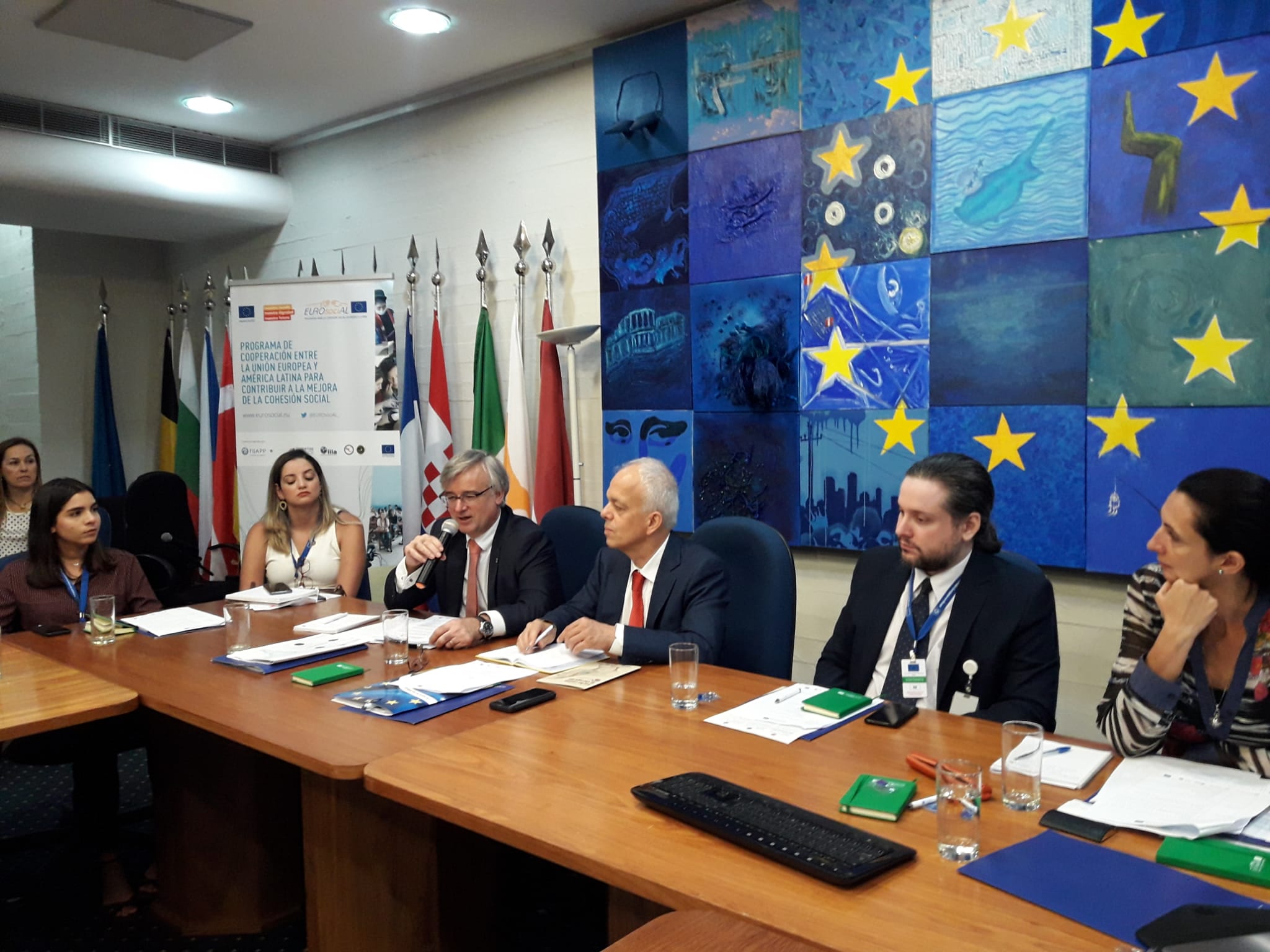The European Union ambassador to Brazil, Ignacio Ybáñez, highlighted the opportunity to intensify cooperation in those areas where the Euro-Latin American Programme for social cohesion can make a greater contribution.

The EU ambassador to Brazil, Ignacio Ybáñez, addresses the institutions called to the workshop.
The Delegation of the European Union to Brazil and the Brazilian Cooperation Agency held a strategy prioritisation workshop on joint lines of work under the EUROsociAL+ Programme to strengthen actions already underway and to identify new priorities to support public policies seeking to improve the levels of social cohesion and reduce inequalities.
The Head of EU Cooperation in Brazil, Stefan Agne, and the representative of the Brazilian Cooperation Agency, Luis Carlos Gomes, coordinated the workshop, which was subsequently joined by the European Union ambassador to Brazil, Ignacio Ybáñez, who highlighted the opportunity to intensify cooperation in the areas where EUROsociAL+ can make a greater impact.
The Brazilian institutions participating in the December 3 workshop at the headquarters of the Delegation of the European Union in Brasilia were: the Government Secretariat of the Presidency of the Republic (Special Secretariat for Federation Affairs and Special Secretariat for Social Strategy), the Superior Electoral Court, the Federal Public Ministry (Head of International Relations), the Comptroller General of the Union, the Union Public Defender’s Office (Secretariat for Strategic Affairs and the International Relations and Cooperation Unit), the Ministry of Women, Family and Human Rights (the International Cooperation Coordination Unit and the National Secretariats of Policies for Women, the Rights of Persons with Disabilities, the Rights of Children and Adolescents, for the Family, for the Promotion of Racial Equality, for the Promotion and Defence of the Rights of the Senior Citizens and Global Protection), the Ministry of Economy (Planning, Development and Management and Special Employment Secretariat), the Ministry of Citizenship (Directorate of Technical Cooperation) and the Ministry of Agriculture, Livestock and Provisions.
This strategic workshop came out of the dialogue that took place between 27 and 30 May 2019, in which the EUROsociAL+ Programme was presented to the new teams of the recently elected government[1], the portfolio of actions already approved and still underway was reviewed, and the interest in new areas of work was explored, as was, albeit tentatively, the possibility of opening the programme to the participation of other stakeholders, such as the legislative power, state governments, local governments, and civil society.
The Brazilian Country Dialogue Table is scheduled to take place in the first quarter of 2020. Based on the conclusions of the strategic prioritisation workshop and other bilateral coordination actions to be undertaken by the Delegation of the EU and the Brazilian Cooperation Agency under the programme in the coming months, the Country Dialogue Table aims to identify the issues (in the field of social, democratic governance and equality policies) with the potential to become the subject of concrete actions to initiate dialogue about these, approve them and start their implementation.
[1] Jair Bolsonaro, leader of the Social Liberal Party (PSL), won the Brazilian presidential election held on 28 October 2018. He obtained 55.13% of the vote as opposed to the 44.87% obtained by Fernando Haddad, the Workers Party (PT) candidate.



